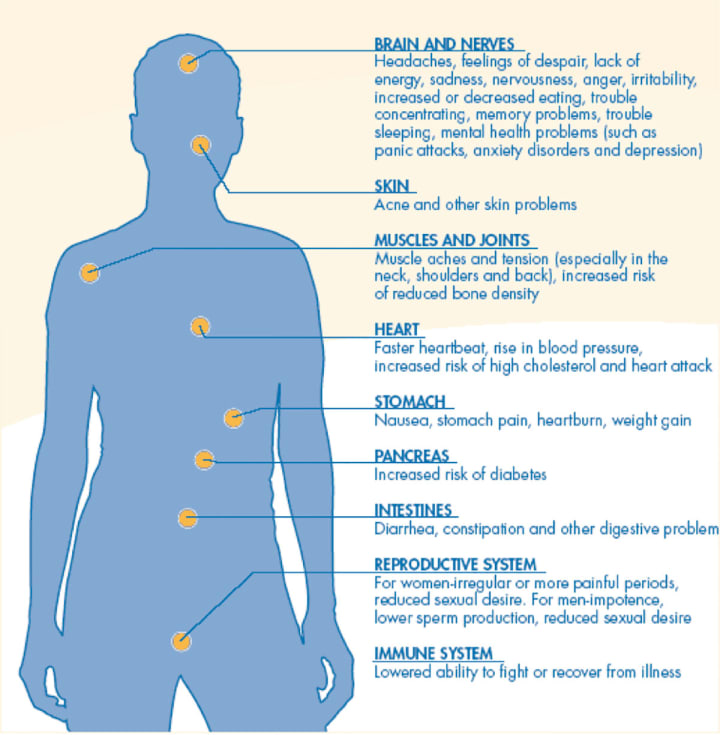Family Stress Impacts Your Health
Heart racing, loss of vision and exhaustion? You may be suffering from family stress.

Every family has its share of fights, which can be good since holding back and suppressing negative feelings can make you sick. But if family squabbles go unresolved and become prolonged conflicts, they can create serious stress effects taking a physical toll on the heart, according to a research team headed by Paul R. J. Falger, Ph.D., of the University of Limburg School of Medicine in the Netherlands.
Stress Affects Your Vision

Remember the last time you stumbled on a step or walked smack-dab into a wall? Chances are it happened when you were suffering a stress effect. The connection between stress and such motor mishaps has long been accepted on grounds of common sense, but researchers have added a scientific explanation: Psychological stress affects how much we see with our peripheral vision.
The more stressful events a person experiences, the more likely he or she was to have relatively narrow peripheral eyesight when forced to respond quickly to a visually demanding task. This may explain why cracks in the sidewalk trip us up much more readily when we're upset or why we fail to notice approaching cars on the most frenzied of mornings. The best advice is to maximize your concentration when stressed, since you may be missing critical cues in your peripheral vision such as judging the distance between you and a moving car, person or even a stationary wall.
Stress Increases Heart Attack Risk

Falger and his colleagues studied men between the ages of 35 and 70 who had recently had their first heart attack. Prolonged familial discord, they found, is linked with a higher risk of first heart attacks. The family friction commonly revolved around serious marital strife; educational problems with children in school; problems that stemmed from living with in-laws, older parents and other extended-family members; and prolonged conflicts with children who had left home because they found it too difficult to live there.
Stress From Vital Exhaustion

In a related study, the same group of researchers found another early warning predictor of first attacks. They dubbed it "vital exhaustion"— the fatigue, depression, sleep disorders and even despair afflicting men who pushed themselves too hard. In fact, vital exhaustion emerged as one of the strongest predictors of a first attack and appears to be an important risk factor in its own right, joining the roster of other well-known risks such as high cholesterol levels, high blood pressure and smoking. Vitally exhausted men with combative, hard-driving, type-A personalities run an especially high risk. They tend to push themselves even when they're tired, and they get into more marital tiffs and conflicts than type Bs.
While family turmoil and vital exhaustion can each contribute independently to physical deficiencies like weakened site, hearing or even taste, the most concerning is first heart attack. The vitally exhausted men in Falger's study reported having more chronic problems in family life than their less run-down counterparts in control groups. It's not yet clear whether the exhaustion or the family strife contributes the most—or if the same findings hold for women. The research team is currently looking to see if battle fatigue also set women up for heart attacks.
About the Creator
James Porterson
Former obese teen turned nutritionist. Enjoys writing about staying active and proper nutrition.






Comments
There are no comments for this story
Be the first to respond and start the conversation.